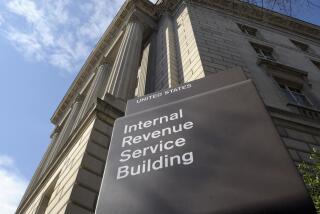It’s Time to Do Your End-of-the-Year Real Estate Tax Planning
The end of 1989 is rapidly approaching. But you still have time for your year-end real estate tax planning to minimize your 1989 income taxes. Here are some suggestions if you want to lower your taxes:
Buy a home. If you don’t already own a home, acquiring one can cut your income taxes while you get to enjoy the benefits of home ownership. Uncle Sam now allows you to deduct the interest on a home “acquisition mortgage” up to $1 million when you buy, construct or improve your principal residence or second home. Deducting mortgage interest is usually better than paying non-deductible rent.
Deduct the mortgage loan fee. When buying a home, if the mortgage lender charges a loan fee to approve your loan for buying, constructing or improving your primary residence, you can deduct the loan fee as itemized interest.
However, the IRS says you must pay the loan fee by separate check if you want to deduct the entire amount in the year paid. But if you allow the lender to subtract the loan fee from your loan proceeds, then the IRS says you can only deduct the loan fee over the life of the mortgage.
Obtain a home-equity loan. In addition to the interest deduction on your home-acquisition mortgage, you can also deduct the interest on a home-equity loan up to $100,000. Many shrewd taxpayers are now paying off their mostly non-deductible credit card, auto and personal loans, and replacing them with deductible home-equity loans. However, if you borrow for business purposes, regardless of the amount, then your interest becomes deductible as a business expense.
Sell your home and buy a replacement. Another way to maximize your 1989 real estate tax deductions is to sell your primary residence and buy a replacement home. Internal Revenue Code 1034 allows you to defer paying tax on your sale profit if you purchase a replacement principal residence of equal or greater cost within 24 months before or after the sale. If you buy a home that requires a larger mortgage, you will be increasing your deductible mortgage interest and property tax deductions.
Deduct your moving expenses. If you move because of a change in job locations, whether or not you change employers, you may qualify to deduct your moving expenses. However, the tax law says your new job site must be at least 35 miles farther away from your old home than was your old employment location.
To illustrate, if your old job was 10 miles from your old home, your new job must be at least 45 miles (10 plus 35) from your former residence. In addition, you must be employed in the vicinity of your new job location at least 39 weeks during the next year after your move, or 78 weeks in the next two years if you are self-employed.
By completing the residence change in 1989, you can deduct all your household moving expenses plus up to $3,000 of indirect costs, such as all or part of your real estate sales commission for selling your old home, house-hunting trips, and even temporary living expenses.
If you are 55 or older, sell your home and claim up to $125,000 of tax-free profits. The “over 55 rule” of Internal Revenue Code 121 allows you to claim up to $125,000 of tax-free profits when selling your principal residence if you or your co-owner spouse are 55 or older on the day of sale, have owned and lived in the principal residence any three of the five years before the sale, and have never used this tax break before.
Make a tax-deferred exchange. Investment or business property can qualify for an IRC 1031 tax-deferred exchange for other “like kind” property. Reasons for making such exchanges include: trading for property with a greater depreciable basis, avoiding tax on profits, acquiring a more desirable property and disposing of an unsuitable property.
Delayed “Starker” exchanges are also available under IRC 1031(a)(3) if you want to sell your property and have a third-party intermediary hold the sale proceeds while you designate within 45 days a property to be acquired within 180 days.
Defer a property sale into next year. If you want to sell a property that does not qualify for tax-deferral or tax exemption, you can push the sale into 1990 or a later tax year by using a lease with option to buy. An installment sale will partially accomplish the same tax result.
Deduct a casualty or theft loss. You can deduct a loss that was “sudden, unusual or unexpected,” such as fire, flood, hurricane, earthquake, accident, theft, windstorm, water pipe breakage or tornado damage. However, casualty losses are tax-deductible only on the loss that exceeds 10% of your adjusted gross income.
Deduct expenses for your real estate business activities. If you own business or investment real estate, don’t forget that you can deduct applicable expenses such as operating costs, legal fees, accounting charges, business travel costs and other applicable expenses. These tax-deductible expenses will help minimize your 1989 taxable income. For further details on maximizing your 1989 real estate tax deductions, please consult your tax adviser.
More to Read
Inside the business of entertainment
The Wide Shot brings you news, analysis and insights on everything from streaming wars to production — and what it all means for the future.
You may occasionally receive promotional content from the Los Angeles Times.










